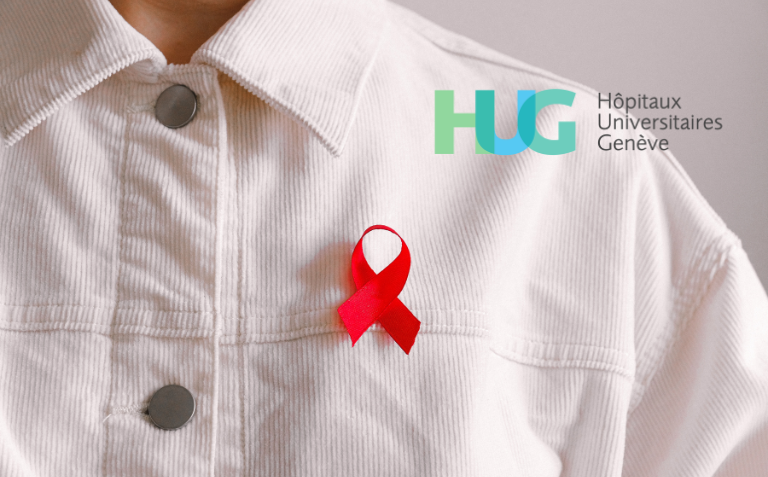
A patient in remission from HIV after a bone marrow transplant
Share this article
The HUG and the Institut Pasteur have announced an exceptional case of HIV remission. A promising discovery.
The patient has been living with HIV since the early 1990s and has always been on antiretroviral treatment. In 2018, to treat a particularly aggressive form of leukaemia, he underwent a stem cell transplant. One month after the transplant, tests showed that the patient’s blood cells had been completely replaced by the donor’s cells. These results were accompanied by a drastic reduction in the number of cells carrying HIV. The antiretroviral treatment was gradually reduced and finally stopped in November 2021. “What’s happening to me is magnificent, magical, and we’re looking to the future,” says the patient.
An unexpected case of remission
Today, a total of five people worldwide (patients from Berlin, London, Düsseldorf, New York and City of Hope) are considered likely to have been cured of HIV infection after receiving a bone marrow transplant. In all these cases, the transplant came from a donor carrying the rare CCR5 delta 32 genetic mutation, known to make cells naturally resistant to HIV.
The particularity of the patient being treated at the HUG, whose case is being studied in collaboration with the Institut Pasteur, the Institut Cochin and the IciStem consortium, lies in the fact that the graft came from a donor who did not carry the famous CCR5 delta 32 mutation. So, unlike the cells of other people considered cured, this person’s cells are not resistant to HIV. Yet despite this, the virus remains undetectable 20 months after antiretroviral treatment is stopped.
Hope for the future
“Although this protocol cannot be transposed on a large scale because of its aggressiveness, this new case provides unexpected insights into the mechanisms of elimination and control of viral reservoirs, which will be important for the development of curative treatments for HIV”, explains Asier Sáez-Cirión, head of the Viral Reservoirs and Immune Control Unit at the Institut Pasteur.
“With this singular situation, we are exploring new avenues in the hope that remission, or even cure, of HIV will no longer be an exceptional event,” adds Alexandra Calmy, head of the HIV/AIDS unit at the HUG. This new case of long-term remission of HIV will be presented on 24 July in Brisbane, Australia, at the 26th International AIDS Conference, IAS 2023, by Prof Alexandra Calmy and Prof Asier Sáez-Cirión.
39 million people infected worldwide
In 2022, 39 million people worldwide were living with HIV, and nearly 30 million had access to treatment, according to UNAIDS figures. Nearly 89 million people have been infected since the epidemic began in the early 1980s. In total, more than 40 million people have died from AIDS-related illnesses. In Switzerland, according to the Federal Office of Public Health, around 17,350 people are living with HIV.
Source: HUG